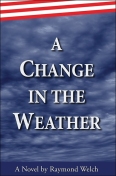My dad’s death a few weeks ago wasn’t entirely unexpected—he’d been struggling with chronic obstructive pulmonary disease (COPD) for some time—but it was still a shock. We all thought he’d be hanging around a few more years, drinking his weasel-piss beer and grousing about the world he saw through the lens of Fox News.
The proximate cause was heart failure. But his lungs were bad, his blood pressure was high, and his liver and kidneys were pretty well shot.
He’d been a life-long smoker, of course. He had a smoker’s hack, plegmy and rough. He didn’t exercise at all. He had no stamina. Even as a young man, he’d drive a half block to the corner grocery for a pack of Lucky Strikes. He was as finicky as a four-year-old, living off cured meats, cold cereal, sticky buns, and ice cream, bemused by anything so exotic as a mushroom, which he’d derogate as a toadstool. By the time he was in his 60’s, walking a few dozen yards drained the blood from his face. That symptom led to surgery to bypass the eight-inch column of calcium that cigarettes and bad diet had deposited in his aorta.
In other words, his troubled health was his own making and there were plenty of signs of it. But he didn’t quit smoking until that bypass operation, and did it then only through external enforcement. He was in intensive care for 40 days, working his way through his addiction while in an induced coma. He never did improve his diet. If anything, it got worse after my mother died and wasn’t around to cook for him.
He was at the kitchen sink taking a pill when he collapsed.
When complex systems fail, they often fail suddenly and catastrophically. Each organ of the human body plays its vital role to keep the whole system running. Everyone instinctively understands that losing an active organ like the heart brings the entire body down. But that’s also true for more passive organs, like the kidneys and liver, or even the pancreas or skin.
The ice cap is one of Earth’s vital organs. If the ice cap goes, it won’t be like having a tooth pulled, or a gall bladder removed, or losing the hearing in one ear or the sight in one eye. It’ll be like kidney failure. Losing the ice cap will cascade through the planet’s hydrologic system the same way the loss of kidney function cascades through the human circulatory system. And I think it could happen almost as abruptly.
Dad’s heart failed, and his lungs, and his circulatory system, but perhaps the organ that failed most sadly was his brain. He never really drew the connection between his behavior and his condition. His habits were beyond examination or alteration. He grew angry if his family drew his attention to them, and he dismissed his doctors’ advice until the signs of impending illness became irreversible symptoms.
The analogy isn’t perfect for our self-induced climate problem. The climate transcends an individual person’s life. As Holly Moeller points out in her excellent article in this weekend’s San Francisco Chronicle, humans are genetically indisposed to long-term thinking because for millennia we were concerned mostly with finding food and escaping immediate threats to safety. Even so, we do have the capacity to do it. Moeller cites the Iroquois practice of considering their actions’ effect on the seventh generation hence. Many of us heed the advice to plan for retirement.
And no one person can solve the climate crisis, even if they never used another molecule of fossil fuel in their lives.
But the analogy does hold. The systemic effects of an ice cap collapse can be avoided only if the present generation considers future ones and takes preventative action. The tremendous power of fossil fuels has insulated us from the need to make those considerations—up to now.
Future generations won’t bear the exclusive brunt of our inability to imagine and prevent the health consequences of our present actions. We’ll bear it, too, I’m convinced. The signs are there: the migration of species to higher altitudes and latitudes, the earlier springs and later falls, the acidification of the oceans, the destabilizing jet stream and, most obviously, the atrophying ice cap. One of the planet’s major organs is about to fail, with all the systemic consequences that implies, unless we can modify the way we live.
That won’t be any easier for us than it was for my dad. He waited until his aorta plugged, and then began a too-little, too-late regimen that extended his life for just a short while. I don’t judge him. We’re all entitled to make decisions about our own lives, and have only ourselves to answer to for them. It’s hard to change. I suppose he hoped it wasn’t so bad.
But our decisions about the health of the ice cap and our biosphere—or our inability to make them—affect more than our own individual lives. We have to answer to others. That makes it even harder. We all know that disease is real, while the link between the ice cap and the atmosphere seems abstract. That makes it harder still.


I am so sorry about the loss of your father…